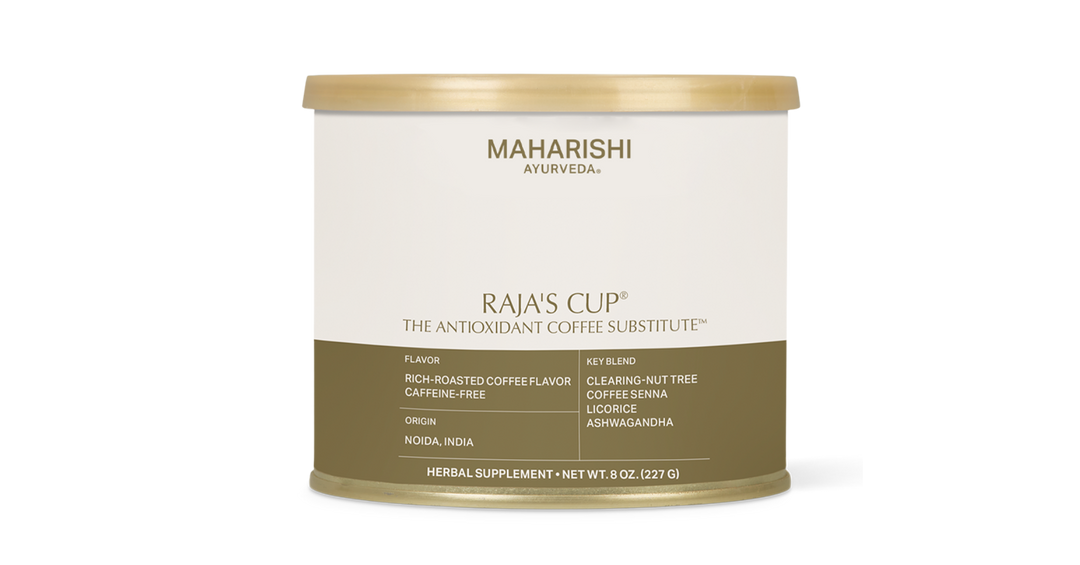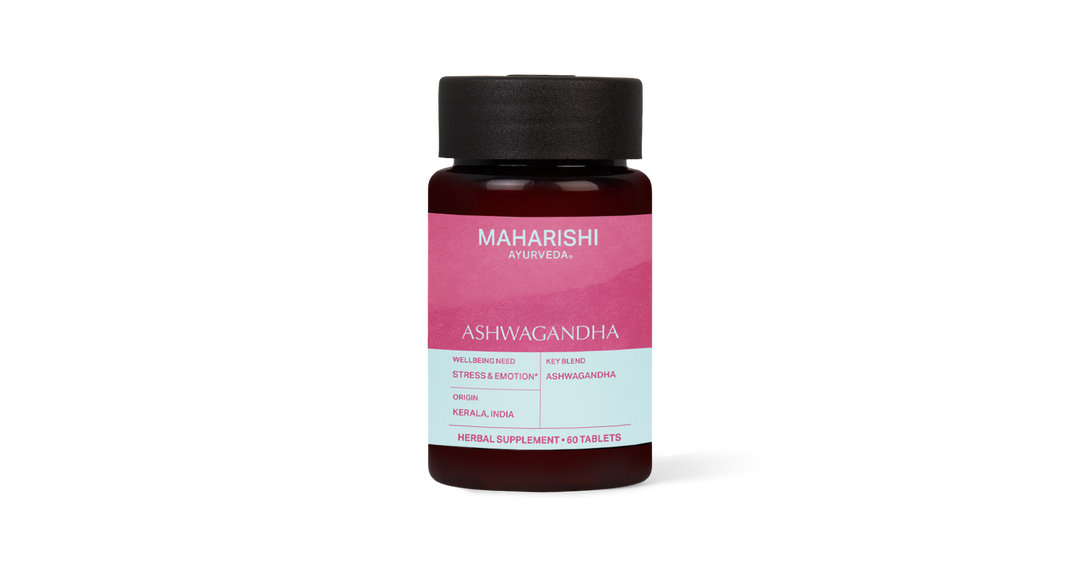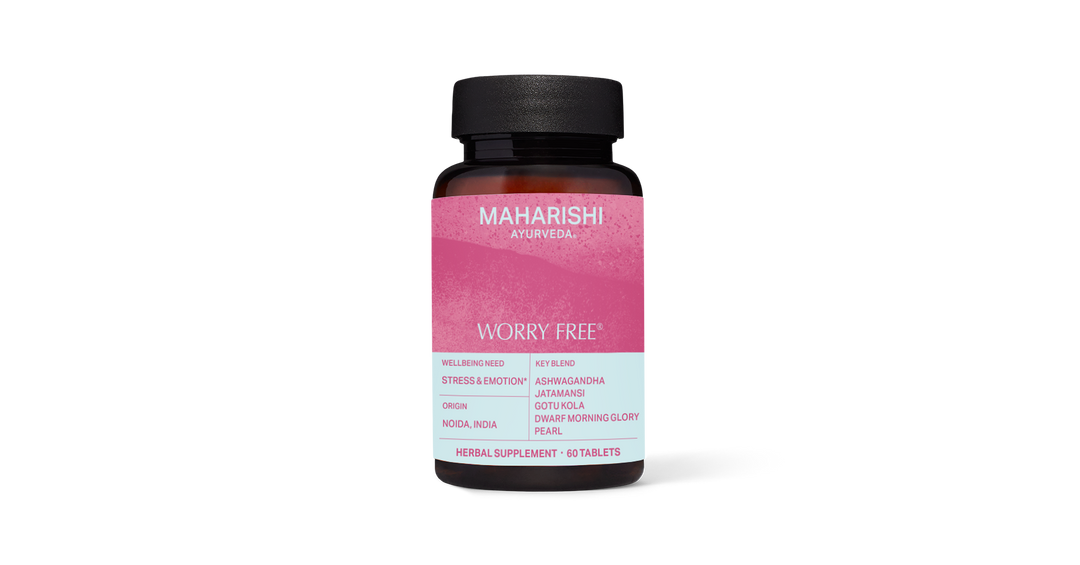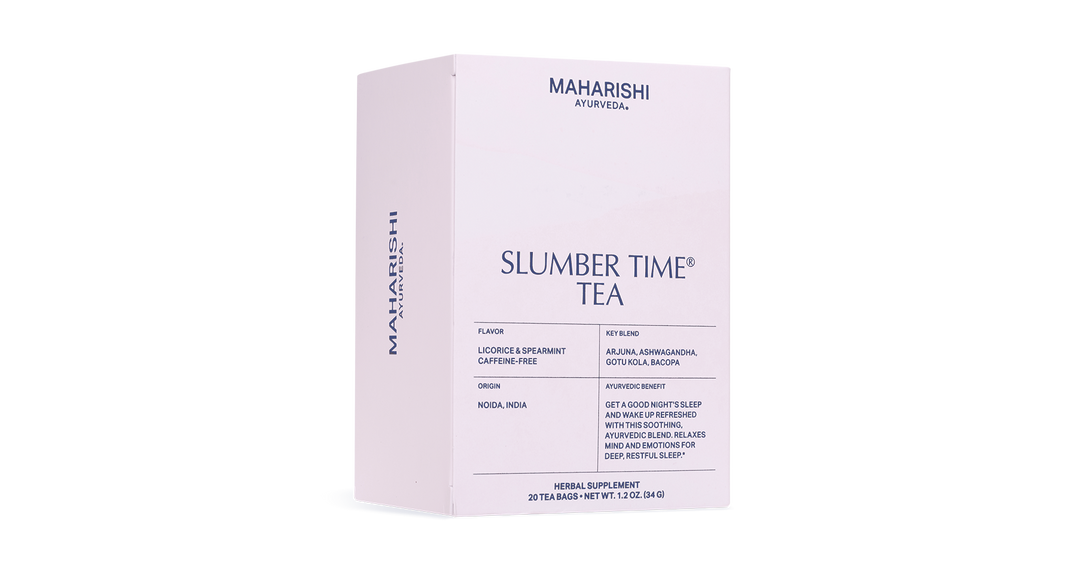Have you heard of the 90-10 rule for a happier life? So the theory goes, 90% of life is what happens to you, which is out of your control. The other 10% is how you react to what happens to you. And that’s totally within your control.
When times get tough, we can’t always control our circumstances. But we can improve how we react to them. The Maharishi AyurVeda approach is simple: by following a good routine—complete with a healthy diet, plenty of rest, and calming practices like Transcendental Meditation® and yoga—you can improve how you respond to life’s ongoing challenges.
Here are some specific Ayurvedic stress-management tips to help you cope during troubled times.
Reach Out
Loneliness aggravates occasional feelings of anxiousness. Make a point of spending time in the company of those you love. Take steps to rejuvenate your relationships with family and friends, near and far. Find ways to be generous with your time, energy, and attention—while still taking good care of yourself.
Take Control of Your Responses
An instant way to calm jittery nerves is to start breathing slowly and deeply. This brings down the heart rate and blood pressure, calming the muscles and sending a relaxation response throughout your body and mind.
How to Do Slow Breathing
- Sit comfortably with your back straight.
- As you inhale, try to feel your breath traveling down into your abdomen. As you exhale, relax your shoulders.
- Take care not to breathe too fast. If your air-circulating channels (Vata vahi srotas) are not clear, the oxygen will be distributed unequally throughout your body, which can do more harm than good.
- As you breathe, gently try to keep your pace easy and the rhythm steady.
During your slow-breathing practice, it can be beneficial to diffuse a few drops of a calming aromatherapeutic essential oil such as lavender, rose, or jasmine in a diffuser. Our Calming Vata Aroma Essential Oil and Worry Free Aroma Oil blends are especially helpful during this practice.
Try slow breathing at least twice a day for 10 minutes each time, and you will experience a new sense of bliss.
Eat Right
Ayurveda maintains that you really are what you eat. With that in mind, it’s beneficial to eat foods that help you relax. Choose foods to help address the effects of stress-generating free radicals. Fresh and seasonal fruits and vegetables (lightly cooked with digestive spices) contain antioxidants that can help with oxidative stress. Whole grains and legumes fuel your body naturally, transporting nutrients down to the tiniest tissues. (Related read: “Ayurvedic Comfort Foods.”)
Ayurvedic herbs can be beneficial, too. Our Maharishi Amrit Kalash formula—known as the rasayana (rejuvenative) of all rasayanas—in Ayurveda contains beneficial herbs and fruits with antioxidant properties, which support natural vitality and immunity. Amrit Kalash is helpful as a supplement to a healthful diet, helping you feel naturally bright and sunny even when times are tough.
Drink Up
Our bodies need at least eight glasses of water a day to stay hydrated and naturally flush toxins. When the urge for a warm beverage hits, try our Raja's Cup Natural Coffee Substitute, a delicious herbal beverage that calms without the side effects of caffeine. It also contains ashwagandha, an Ayurvedic adaptogen that helps your body naturally adapt to stress.
Exercise
Moderate exercise is a great way to de-stress. Yoga, which is an integral part of Ayurvedic healing, is a way to exercise all parts of your body, while also soothing the nerves and balancing the mind. Here is one simple yoga asana you can try when feeling less than cheerful:
How to do child's pose (Balasana)
- Kneel on your shins, buttocks resting on your heels, knees together.
- With your arms at your sides, palms up, bend from the hips and extend your upper body over your knees.
- Resting on your thighs, bring your forehead to the floor.
- Breathe deeply, hold for as long as is comfortable. Then slowly sit up.
If you have trouble kneeling, placing a pillow between your thighs and calves will help.
What it Does For You
This simple asana floods every cell of the body with both oxygen and prana (life force energy), helping to eliminate physical and emotional ama (toxins). The constriction on your legs increases blood supply to the upper body, making respiration more efficient and energizing the blood, which in turn begins to remove waste gasses more efficiently. The pressure from the diaphragm in this posture creates a deep, slow, rhythmic massage of the vital organs, energizing them. Both the quality and the quantity of the blood circulation to these vital organs improve when you are in Child's Pose.
If you hold the pose longer than five minutes, deeper benefits occur (but be sure never to strain—always go with your comfort). This asana has a regulatory effect on the endocrine system. It sends more blood to the head and to the pituitary gland—the master gland that regulates hormonal balance. This makes Child's Pose an extremely relaxing asana. (Related read: Learn about yoga asanas for digestion and yoga poses to ease occasional bloating.)
Sleep Well
Stress can steal your sleep, leaving you feeling unhappy and unwell the next morning. The Council of Maharishi AyurVeda Vaidyas recommends these sleep-friendly steps:
- Try to go to bed early—ideally between 6:00 p.m. and 10:00 p.m. This period is ruled by Kapha dosha, the Ayurvedic mind-body energy that is associated with calm and restfulness.
- Give yourself an abhyanga (self-massage with warm oil) daily to soothe the joints and nerves, supporting calm throughout the day and good sleep at night.
- Poppy seeds have a pleasant sedative effect—consider adding some to your evening diet.
- Favor peaceful, calming activities in the evening before bed (avoid watching overly exciting or stressful TV shows).
- Before going to bed, sip a cup of Organic Calm Vata Tea with warm milk. Or try our Slumber Time Tea.
- Both our Blissful Sleep herbal supplement and Worry Free herbal supplement nourish Prana Vata—the subdosha of Vata dosha which regulates mental activity.
Meditate
It’s important to make time for downtime. Hundreds of studies have shown that daily practice of Transcendental Meditation not only helps with stress, it can change your life in dramatic ways.
Extensive research has indicated that practicing the TM technique for 20 minutes twice daily can lead to increased calm, creativity, energy, clarity of mind, and happiness.
Want to know more on this topic? Read “Ayurveda for Stress: 11 Ways to Find Your Calm.”
© 1999, 2024 Maharishi AyurVeda Products International, Inc. (MAPI). All Rights Reserved. MAPI does not provide medical advice, diagnosis or treatment. These statements have not been evaluated by the Food and Drug Administration. Products are not intended to diagnose, treat, cure or prevent any disease. See additional information.








